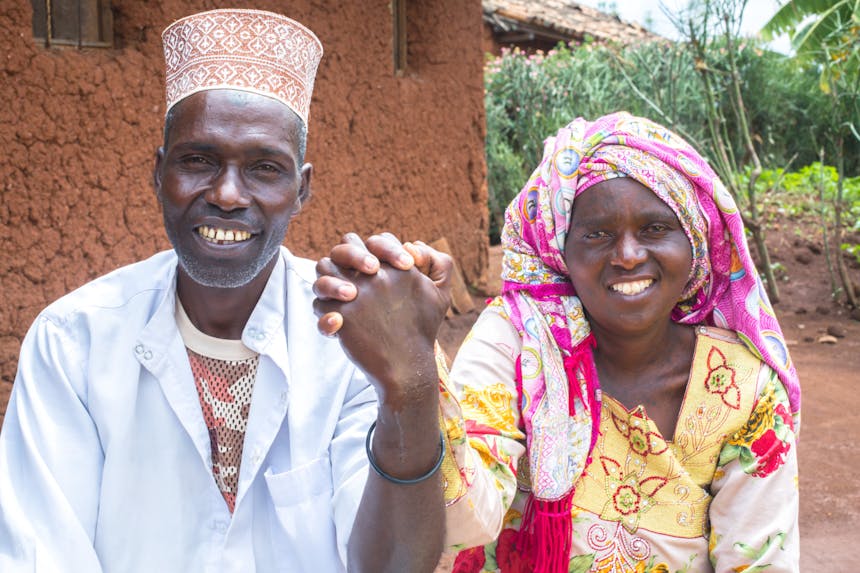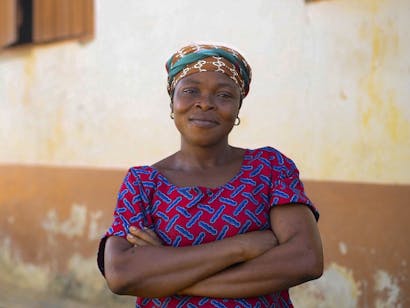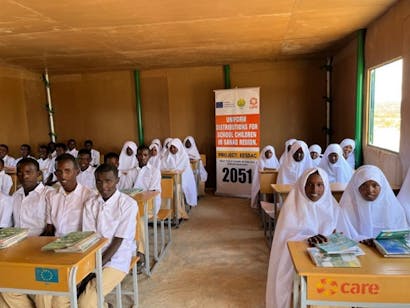How Campaigning Can Shift Social Norms
To shift these harmful social norms, CARE Nederland partnered with RNW/RNTC to train and coach country teams in Burundi, Rwanda, Somalia, and Sudan on traditional and digital media campaigning. These campaigns led to early signs of changing attitudes and behaviours at the household and community levels.

With persuasive storytelling, positive narratives are tailored for specific target groups to help them engage with new ideas for positive change in attitudes and beliefs. To design these campaigns, a specific social norm (e.g., women should stay at home to manage domestic responsibilities) and the social actor(s) (e.g., husbands, clan elders, young women) maintaining such norms were identified in each country. These actors became the target groups: those who we wanted to influence to support women and youth’s participation in public decision-making processes.

Did we see changes in attitudes and behaviours indicating shifting social norms?
We did. First, the target audiences that engaged with the campaigns began showing signs of changing attitudes at the household level. For instance, men in Rwanda and Burundi began sharing household chores (like cooking, cleaning, child-care) and financial decision-making to exercise their commitment to supporting women’s rights and equality. Some men also openly supported women’s participation in the public and political sphere. In Sudan, 11 parents allowed their daughters to continue education and many others committed to refrain from marrying their daughters off early.
The campaigns engaged with powerholders to influence community members. In Somalia, dialogue forums brought together successful women and clan elders to discuss women’s political participation, thereby inspiring other young women to participate in governance processes. In Sudan, religious leaders agreed to include the importance of addressing negative social norms in their sermon during Friday prayers. Aligning with Sudan’s campaign, a headmaster of a girls’ school also expressed ardent support against early marriage and committed to organise sessions with parents to discuss the importance of girls’ education. Additionally, in Burundi, a commune administrator decided to personally lead the offline campaign activities and abolished the fees for marriage registration, which enables more women to register their marriages and be qualified to participate as candidates in the local elections.
So, what were the key take-aways of our campaigns?
Recognising relevant social norms is crucial to determining any shifts
Understanding the presence of the social norms before the campaign begins is crucial to determine any shifts. We used CARE’s Social Norms Analysis Plot (SNAP), where short stories are used to identify key components of a specific, pre-identified social norm to measure changes over time. SNAP helped us understand our baseline so we could watch for signs of change.
Existing changes in local contexts should be leveraged
There were significant changes in local contexts – such as the increase of Somali women in political positions in Puntland, Burundi’s upcoming 2020 elections, and Sudan’s revolution in 2019 where women played leadership roles publicly. These events opened the door for our campaigns and paved the way for more public discussions about women’s political participation.
Effective campaigning requires the right approaches
While persuasive storytelling was effective in reaching our target audience and realising some distinct changes, we found that engaging the target group strategically in the campaign requires a lot of hands-on staff time and skilled online moderation. Practising light, strategic moderation was essential to foster a safe space and increase the diversity of voices online. Furthermore, developing targeted, clear and nuanced messaging (both online and offline) is important so that the messages are not misleading. Ensure it is possible to reach the intended target group online, and/or encourage them to attend offline gatherings so that the messaging can trigger the reaction, debate and discussions that it was intended to incite.
Multiple mediums encourage dialogue among a larger group
Using a variety of campaigning mediums such as radio, social media, and physical events was key to reaching out to a wider public. We expanded spaces for dialogue through offline campaign events by bringing people together to discuss social norms and their impact on women’s public and political participation. The events ensured people could physically participate and directly engage with the campaign messages. It is important to strategically link offline and online campaigns to expand and sustain the dissemination of key messages. For example, we found:
- Radio had wide reach, especially in rural areas. It became an accessible space for dialogue that helped in making private and sensitive issues become public, making target audiences feel more informed and willing to discuss these norms in their homes and communities.
- Social media helped spread the campaign messages to a larger audience across the country, but especially to young, educated men in urban areas. Social media created a new space for dialogue that facilitated debate between supporters and dissenters on certain social norms. The participation of dissenters showed that the campaigns were able to reach the target audiences whose attitudes and behaviours we aimed to change.
Collaboration with local partners widens reach
INGOs like CARE tend to attract audiences more engaged with the development sector, and collaboration with local partners helped leverage their networks to reach wider and more diverse groups of people in the communities. This also increased the capacity of local partners to implement campaigns. For example, in Somalia, our local partner MUDAN publicised their accountability forums online to encourage engagement from a wider audience online. Also, the campaigns led the way in Burundi and Sudan: it was one of the first times that sensitive social norms were publicly discussed by local radio in these countries. In Burundi, two radio stations have continued their radio programming on gender norms due to its popularity.
We have compiled our experiences with campaigning, results, and lessons learned about campaigns to shift social norms into the report below. While this may have been our first coordinated campaign across four countries in EVC, it will not be our last. We have learned a lot about how to continue making our campaigns more impactful and are looking forward to learning how campaigns can help shift negative social norms in different contexts.
The report is also available as a 1-pager to share for a quick 5 minutes of inspiration!


